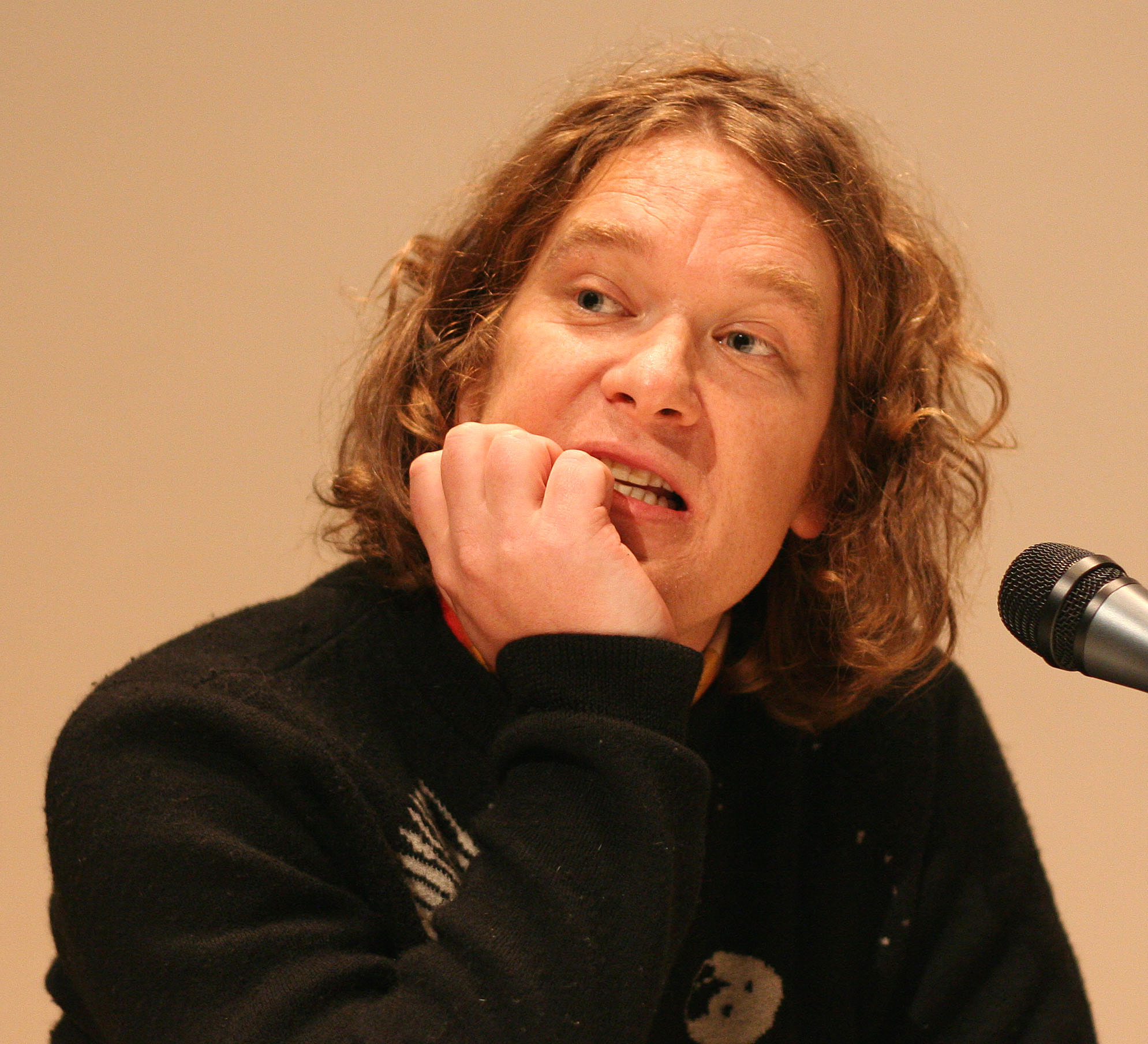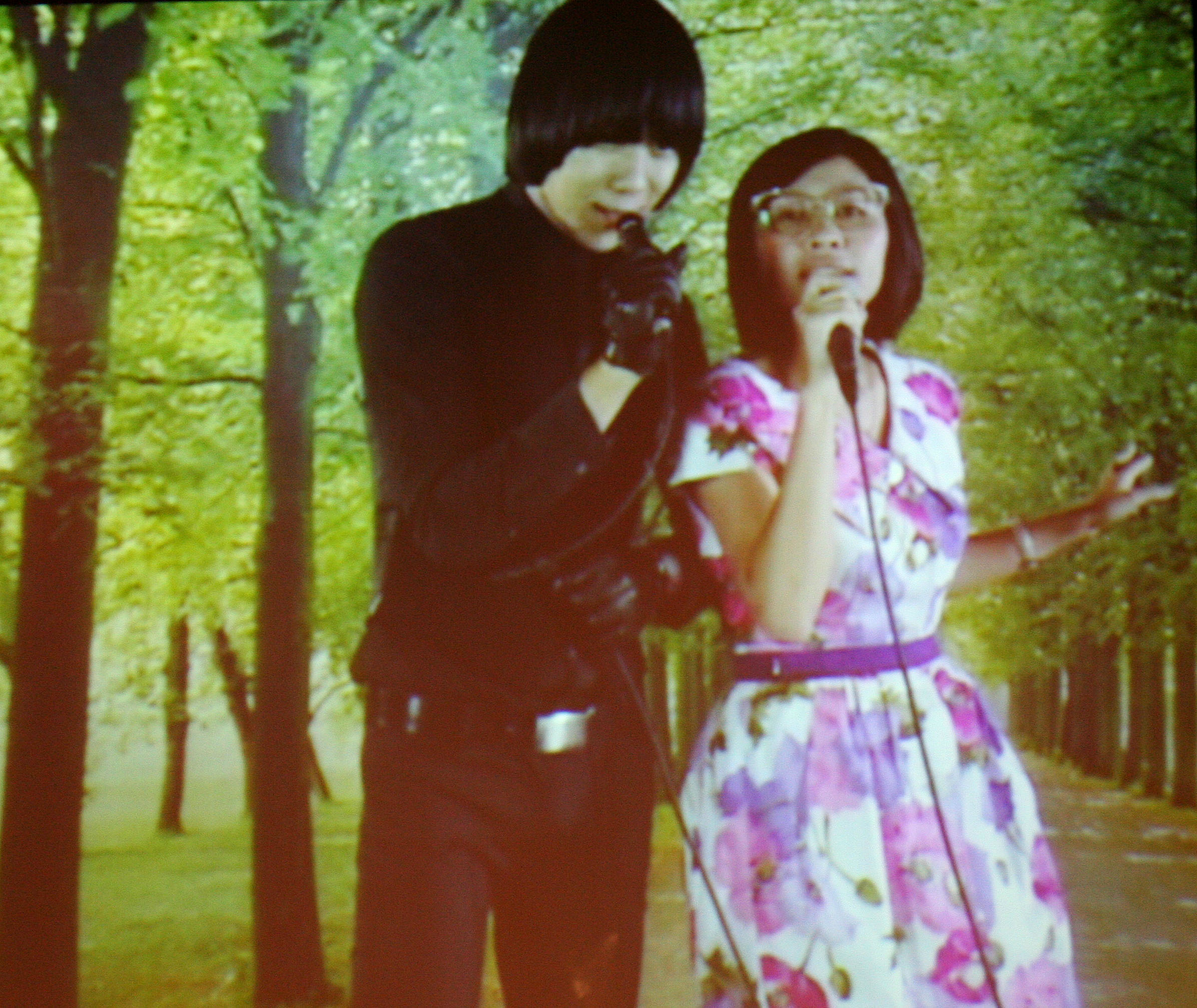 The panel of Sunday-afternoon starts of with a relaxed atmosphere and a busy room. Dieter Lesage unfortunately couldn’t be here, due to illness. Gerald Raunig however, is the first to admit that due to Lesage’s illness he can give a longer presentation. Phil Collins (not the Phil Collins, as Charles Esche pointed out in his introduction) admits his nerves about talking in front of an audience. Nevertheless it proves to be an entertaining afternoon.
The panel of Sunday-afternoon starts of with a relaxed atmosphere and a busy room. Dieter Lesage unfortunately couldn’t be here, due to illness. Gerald Raunig however, is the first to admit that due to Lesage’s illness he can give a longer presentation. Phil Collins (not the Phil Collins, as Charles Esche pointed out in his introduction) admits his nerves about talking in front of an audience. Nevertheless it proves to be an entertaining afternoon.
Gerald Raunig, philosopher and art theoretican, starts his presentation by apologizing in advance for his English and for the fact that he didn’t really know what his talk should be about. After rejecting some ideas, he finally settled in talking about what he calls The Monster Precariat. Precarity or precariousness can have different meanings, depending on social, geographical and temporal context. To Raunig it became clear that there shouldn’t be a rigid distinction between self-determination and external determination and to speak of luxury precarization and the underprivileged precarized, where luxury precarization means the ‘creative class’ and the underprivileged means migrants isn’t easy. The idea of the precariat is that it is a way of understanding migration and what it’s consequences are. There is a discourse of arguments between two groups. On says that it is very naïve to say we’re all precarious and different and the other group claims that we are in fact all the same. There is a debate going on.
 Phil Collins is an artist who makes video art. He starts his presentation with the amusing fact that, for him, speaking in public feels like ‘walking towards an execution’. Collins was interested in what happened to people who participated in a reality, television or talkshow after they were on the show. Some lives were ruined after their appearance on a show. How did they get there? So he tried to contact people who felt they were misrepresented and gave them a chance to tell their story. The first video he showed was a press conference where those people each got ten minutes to tell their story. Collins showed the story of Lindsay, who was in a makeover show where she got a facelift, tummy tuc, teeth reconstruction and more. She felt however that she was badly treated, got an infection and it wasn’t treated well. The funny thing is, Collins says, the press came but the tabloids weren’t interested when they consist almost entirely of these stories. His other videos that he showed were about an eight-hour dance marathon and Asian people singing karaoke. He admits that class plays a big role in the shows he talks about. Usually, the same sort of people appear on these shows. In this form of entertainment you rarely have someone from London for instance, but usually people from the more poor or uneducated group.
Phil Collins is an artist who makes video art. He starts his presentation with the amusing fact that, for him, speaking in public feels like ‘walking towards an execution’. Collins was interested in what happened to people who participated in a reality, television or talkshow after they were on the show. Some lives were ruined after their appearance on a show. How did they get there? So he tried to contact people who felt they were misrepresented and gave them a chance to tell their story. The first video he showed was a press conference where those people each got ten minutes to tell their story. Collins showed the story of Lindsay, who was in a makeover show where she got a facelift, tummy tuc, teeth reconstruction and more. She felt however that she was badly treated, got an infection and it wasn’t treated well. The funny thing is, Collins says, the press came but the tabloids weren’t interested when they consist almost entirely of these stories. His other videos that he showed were about an eight-hour dance marathon and Asian people singing karaoke. He admits that class plays a big role in the shows he talks about. Usually, the same sort of people appear on these shows. In this form of entertainment you rarely have someone from London for instance, but usually people from the more poor or uneducated group.
For a more detailed look at the question of precarity/precariousness please visit this website. This is Gerald Raunig’s paper on The Monster Precariat.